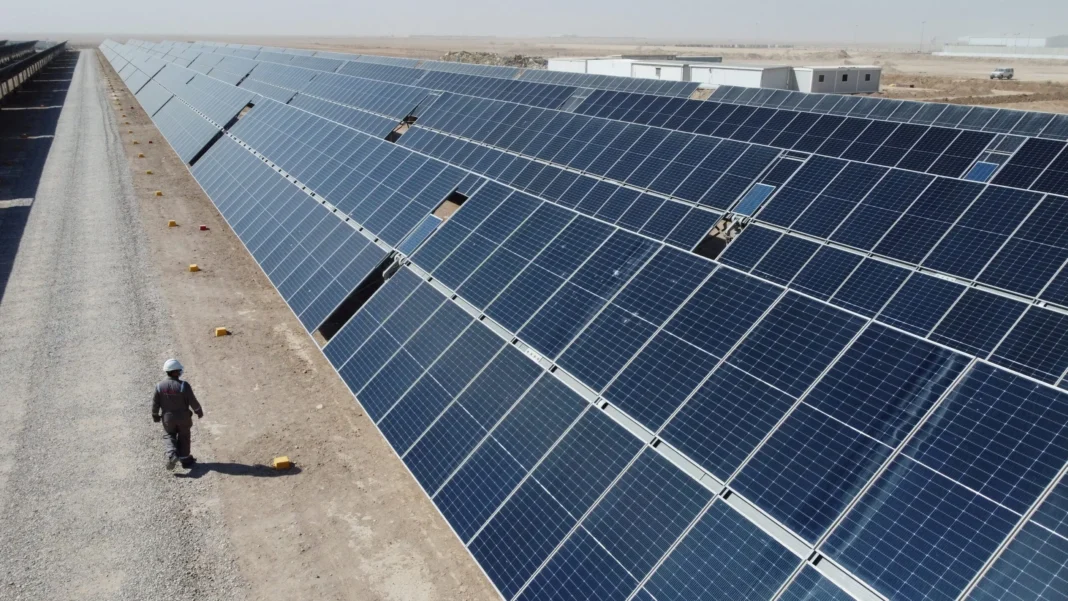The Iraq solar energy project now enters an exciting new phase as construction officially begins on the Shams Al-Basra station in Basra. Consequently, this large-scale facility will produce 1,000 megawatts of renewable power, making it one of the largest clean energy initiatives in Iraq’s history.
To highlight its importance, Prime Minister Mohammed Shia Al-Sudani attended the groundbreaking ceremony. Not only did he stress the strategic value of Iraq’s solar development initiative, but he also emphasized its role in meeting the country’s rising energy demands. Furthermore, the project contributes to long-term national climate targets. As a result, the government pledged full support to keep construction on track.
Additionally, this solar facility plays a key role in a wider energy partnership between Iraq’s Ministry of Oil and France’s TotalEnergies. The large-scale solar initiative will span 9,000 dunams in Basra and include 2 million solar panels. These panels will be divided into four sections, each delivering 250 megawatts of renewable power.
Moreover, the site will undergo major infrastructure upgrades. These include a new 132-kilovolt transmission line extending 180 kilometers, the construction of a new substation, and improvements to two existing substations. As expected, the Iraq solar energy project will deliver its first 250 megawatts of power before the year ends.
Meanwhile, TotalEnergies will operate and maintain the facility for 25 years. This long-term arrangement ensures consistent performance and dependable power delivery. At the same time, it reflects Iraq’s push to work with top-tier international partners and adopt world-class energy solutions.
Equally important are the environmental gains. The Iraq solar energy project aims to cut air pollution, lower fossil fuel dependence, and reduce carbon emissions. Additionally, the power generated will supply three key substations, strengthening energy distribution in southern Iraq.
Beyond these environmental goals, the project significantly supports economic development. It creates local jobs, drives infrastructure growth, and increases domestic energy capacity. Therefore, the Iraq solar energy project serves as a strong model for future renewable investments in the region.
Finally, the project helps Iraq diversify its energy mix while aligning with international climate goals. It also boosts national energy resilience. Without a doubt, the Iraq solar energy project continues to move forward as a leading force in sustainable development.





